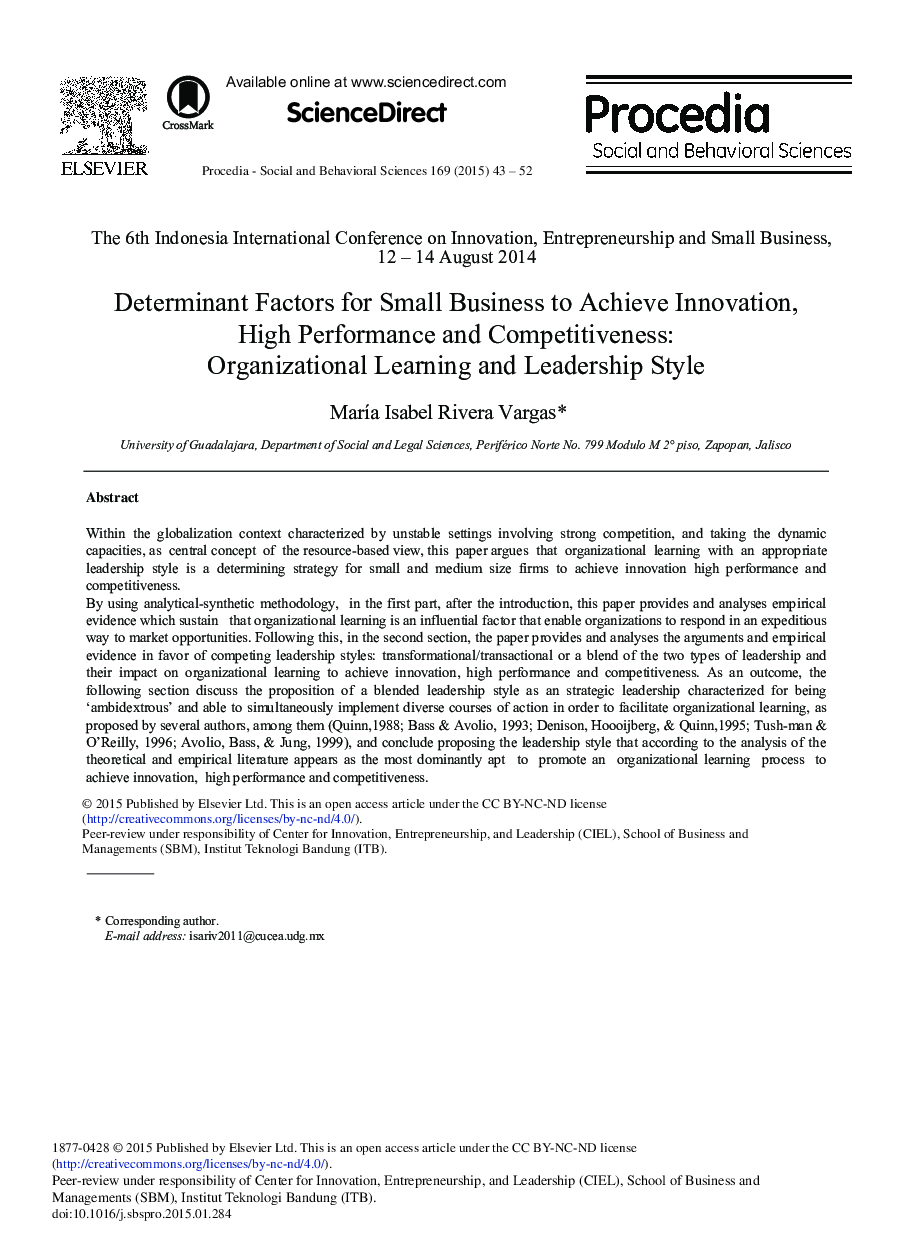| Article ID | Journal | Published Year | Pages | File Type |
|---|---|---|---|---|
| 1111687 | Procedia - Social and Behavioral Sciences | 2015 | 10 Pages |
Within the globalization context characterized by unstable settings involving strong competition, and taking the dynamic capacities, as central concept of the resource-based view, this paper argues that organizational learning with an appropriate leadership style is a determining strategy for small and medium size firms to achieve innovation high performance and competitiveness.By using analytical-synthetic methodology, in the first part, after the introduction, this paper provides and analyses empirical evidence which sustain that organizational learning is an influential factor that enable organizations to respond in an expeditious way to market opportunities. Following this, in the second section, the paper provides and analyses the arguments and empirical evidence in favor of competing leadership styles: transformational/transactional or a blend of the two types of leadership and their impact on organizational learning to achieve innovation, high performance and competitiveness. As an outcome, the following section discuss the proposition of a blended leadership style as an strategic leadership characterized for being ‘ambidextrous’ and able to simultaneously implement diverse courses of action in order to facilitate organizational learning, as proposed by several authors, among them (Quinn,1988; Bass & Avolio, 1993, ; Denison, Hoooijberg, & Quinn,1995; Tush-man & O’Reilly, 1996; Avolio, Bass, & Jung, 1999), and conclude proposing the leadership style that according to the analysis of the theoretical and empirical literature appears as the most dominantly apt to promote an organizational learning process to achieve innovation, high performance and competitiveness.
